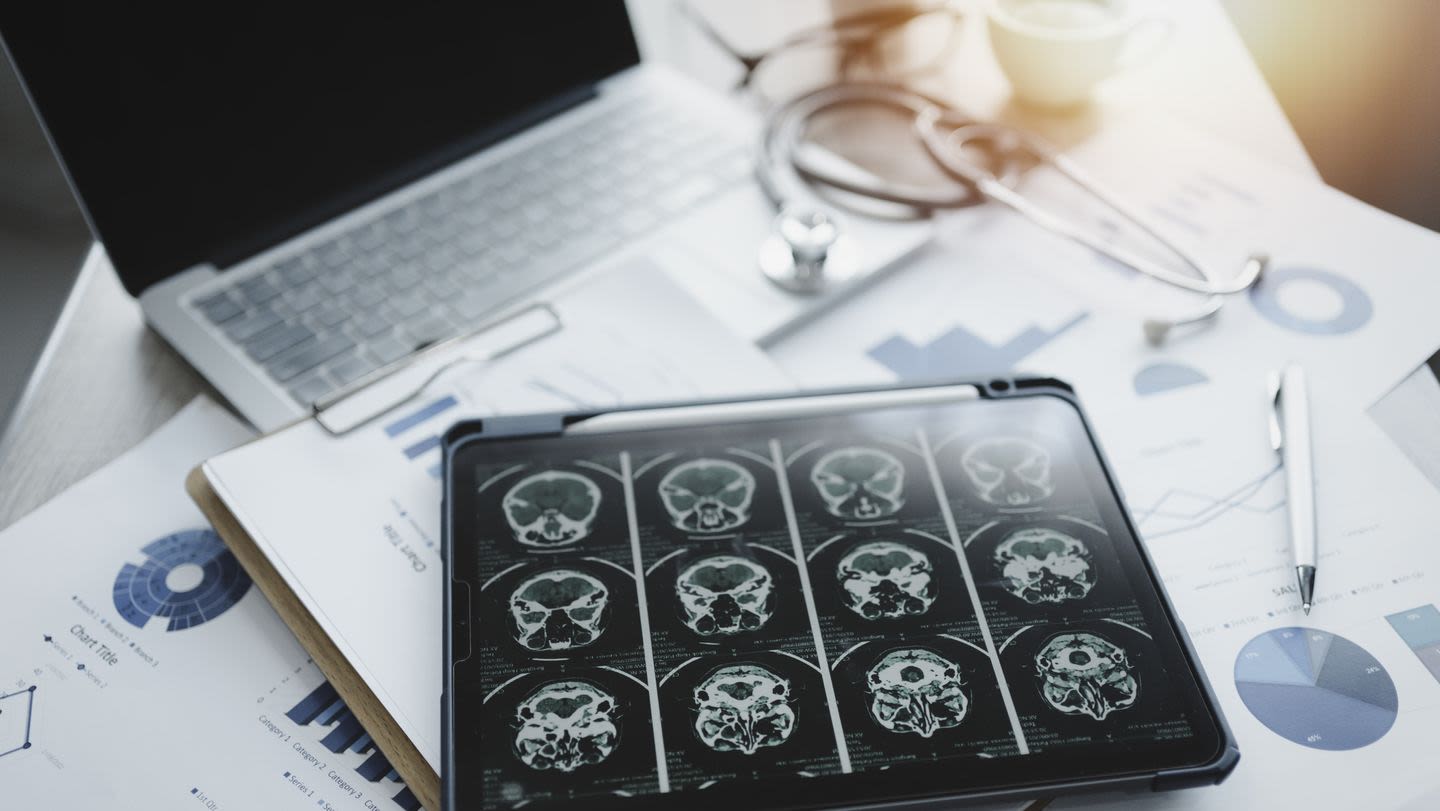Ads
related to: define dementiaLearn More About Managing the Symptoms of Agitation in Alzheimer's Dementia. Understand The Symptoms of Agitation In Alzheimer's Dementia.
- Patient Resources
Information About Managing
Agitation in Alzheimer's Dementia.
- Doctor Discussion Guide
Learn More About How
To Approach Your Doctor
- Patient Resources
Help Your Patients Manage Their Agitation Associated With Alzheimer's Dementia Symptoms. Think Your Patient Might Have Agitation Associated With Alzheimer's Dementia? Learn More
Learn More About Alzheimer's Disease & Other Forms of Dementia Right Here. Learn About Alzheimer's And Various Other Forms And Subtypes Of Dementia.
Search results
- DictionaryDe·men·tia/dəˈmen(t)SH(ē)ə/
noun
- 1. a condition characterized by progressive or persistent loss of intellectual functioning, especially with impairment of memory and abstract thinking, and often with personality change, resulting from organic disease of the brain.
People also ask
What does dementia mean in medical terms?
What is dementia & Alzheimer's disease?
Is dementia a specific disease?
Dementia is a syndrome associated with many neurodegenerative diseases, characterized by a general decline in cognitive abilities that impacts a person's ability to perform everyday activities. This typically involves problems with memory, thinking, behavior, and motor control.
- What Is Dementia?
- What’s The Difference Between Dementia and Alzheimer’s Disease?
- Who Gets Dementia?
- How Common Is Dementia?
- Does Memory Loss Mean Dementia Is starting?
- Are There Different Types of Dementia?
Dementia is a description of the state of a person’s mental function and not a specific disease. Dementia entails a decline in mental function from a previously higher level that’s severe enough to interfere with daily living. A person with dementia has two or more of these specific difficulties, including a decline in: 1. Memory. 2. Reasoning. 3. ...
Dementia is a description of the state of a person’s mental function and not a specific disease. Dementia is an “umbrella category” describing mental decline that’s severe enough to interfere with daily living. There are many underlying causes of dementia, including Alzheimer’s disease and Parkinson’s disease. Alzheimer’s disease is the most common...
Dementia is considered a late-life disease because it tends to develop mostly in people who are older. About 5% to 8% of all people over the age of 65 have some form of dementia, and this number doubles every five years above that age. It’s estimated that as many as half of people 85 years of age and older have dementia. The number of people age 65...
The U.S. Centers for Disease Control and Prevention (CDC) estimate that 5 million U.S. adults age 65 or older have Alzheimer’s and related dementia. By 2060, the CDC projects that about 14 million people will have dementia, which is about 3.3% of the population. Alzheimer’s disease is the sixth leading cause of death in the U.S. and the fifth leadi...
One common misbelief about memory loss is that it always means you or a loved one has dementia. There are many causes of memory loss. Memory loss alone doesn’t necessarily confirm a diagnosis of dementia. It’s also true that some memory changes are normal as a person ages (some neurons in your brain naturally die as we age). However, this type of m...
Dementias can be divided into three groups: 1. Primary (diseases and conditions in which dementia is the main illness). 2. Secondary (dementia due to another disease or condition). 3. Reversible dementia-like symptoms caused by other illnesses or causes.
Feb 10, 2024 · Dementia is the loss of memory and cognitive functioning in a way that impairs day-to-day life. Learn more about what dementia is and how to handle it.
- Cathy Nelson
Apr 1, 2024 · Dementia is an umbrella term used to describe a range of neurological conditions affecting the brain that worsen over time. It is the loss of the ability to think, remember, and reason to levels that affect daily life and activities. Some people with dementia cannot control their emotions and other behaviors, and their personality may change.
News about dementia, Bruce Willis, early signs
News about 5-minute test, 5-Cog, dementia
News about atrial fibrillation, cheese, dementia
Also in the news
Dementia is not a specific disease but is rather a general term for the impaired ability to remember, think, or make decisions that interferes with doing everyday activities. Alzheimer’s disease is the most common type of dementia. Though dementia mostly affects older adults, it is not a part of normal aging. How common is dementia?
Dementia is a general term impaired thinking, remembering or reasoning that can affect a person’s ability to function safely. The term has been replaced by “major neurocognitive disorder” and “mild cognitive disorder” in medical terminology.
Dementia is an umbrella term that refers to a loss of brain function caused by a variety of conditions that affect capabilities like remembering, thinking, speaking, understanding others, and acting in socially acceptable ways. It is different from the occasional forgetfulness that can occur among older adults, and it is not a normal part of aging.
Ads
related to: define dementiaLearn More About Managing the Symptoms of Agitation in Alzheimer's Dementia. Understand The Symptoms of Agitation In Alzheimer's Dementia.
Help Your Patients Manage Their Agitation Associated With Alzheimer's Dementia Symptoms. Think Your Patient Might Have Agitation Associated With Alzheimer's Dementia? Learn More




